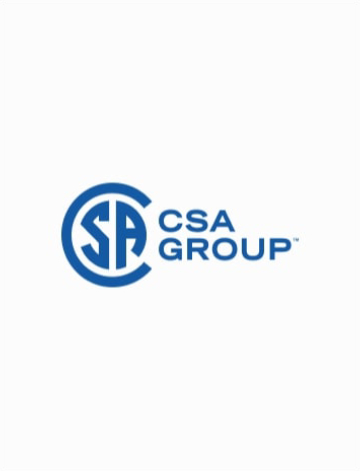Preface
This is the first edition of CSA B109.1, Compressed natural gas vehicle installation code. It supersedes the previous editions published in 2017 and 2014 as Part 1 of CSA B109, Natural gas for vehicles installation code, and in 2001 as CSA B109, Natural gas for vehicles installation code.
CSA B109.1 is applicable to compressed natural gas (CNG). CSA B109.2 is applicable to liquefied natural gas (LNG).
Changes in this edition include the following:
a) added statement acknowledging systems certified to NGV 6.1 are deemed to comply with CSA B109.1;
b) removed allowance of ISO 11439 containers since these are not recognized by Transport Canada;
c) included excess flow devices integrated from factory inside the container valves;
d) added requirements for allowed devices in the latest edition of PRD 1;
e) included neck mounting procedures;
f) added content for common defuelling profile connection;
g) clarified label requirements for refuse haulers and similar vehicles;
h) clarified natural gas leak testing to allow for shipping of systems prior to vehicle installation;
i) harmonized periodic in-service inspection requirements with FMVSS 304; and
j) made editorial revisions to clarify wording and references, tables, and figures, resolve conflicts identified with other documents, provide consistency and clarification between this Code and CSA B109.2, correct metrication values, and harmonize definitions with other industry codes and standards.
CSA Group acknowledges that the development of this Code was made possible, in part, by the financial support of Natural Resources Canada.
This Code has been developed in compliance with Standards Council of Canada requirements for National Standards of Canada. It has been published as a National Standard of Canada by CSA Group.
Scope
1.1 Application
This Code applies to the installation, inspection, repair, and maintenance of the fuel storage and delivery system installed in powered industrial truck applications and vehicles for use with compressed natural gas (CNG). This includes fuel systems on self-propelled vehicles for the provision of motive power.
Federal or provincial regulatory requirements might supersede the requirements of this Code.
1.2 Exclusions
This Code does not apply to
a) stationary engines;
b) mobile equipment using natural gas as a fuel for other than propulsion;
c) liquefied natural gas (LNG) fuel storage systems;*
d) electronic components of a fuel management system;
e) storage or utilization of natural gas on marine vessels or rail vehicles;
f) recreational all terrain vehicles;
g) motorcycles; and
h) vehicles (including their containers) qualified under the Canadian Motor Vehicle Safety Regulations.
* LNG fuel systems are covered in CSA B109.2.
1.3 Units of measure
The values given in SI units are the units of record for the purposes of this Code. The values given in parentheses are for information and comparison only.
Notes:
1) IEEE/ASTM SI 10 or ISO 80000-1 can be used as a guide when converting imperial units to metric units.
2) Where the word gallon is used in this Code, it indicates a U.S. gallon equivalent to 3.785 L water capacity.
1.4 Pressure references
All references to psi throughout this Code are to be considered gauge pressures, unless otherwise specified.
1.5 Mandatory and informative provisions
In this Code, shall is used to express a requirement, i.e., a provision that the user is obliged to satisfy in order to comply with the Code; should is used to express a recommendation or that which is advised but not required; and may is used to express an option or that which is permissible within the limits of the Code.
Notes accompanying clauses do not include requirements or alternative requirements; the purpose of a note accompanying a clause is to separate from the text explanatory or informative material.
Notes to tables and figures are considered part of the table or figure and may be written as requirements.
Annexes are designated normative (mandatory) or informative (non-mandatory) to define their application.


